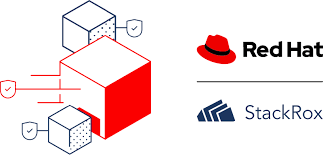Red Hat To Acquire StackRox and Bring More Security To OpenShift Platform
TL;DR
A while ago, RedHat announced its plans to acquire Stackrox, the containers, and Kubernetes-native security provider. Red Hat has a forward motion of taking Stackrox systems to the OpenShift Kubernetes Platform.
From this acquisition, RedHat has intentions to focus on improving security for cloud-native users and workloads with the refining of container build, Kubernetes native controls refining, and better build in the CI/CD phase.

Key Facts
RedHat plans to open source StackRox’s Platform after the acquisition so there will be diverse contributors from the developer community.
Even after the acquisition by RedHat, Stackrox will continue supporting diverse Kubernetes platforms like Amazon Elastic Kubernetes Service, Google Kubernetes Engine, and Microsoft Azure Kubernetes Service.
StackRox will ensure the availability of a policy engine that includes built-in controls to trigger security safe practices and standard platform management.
From this acquisition, RedHat will strengthen customers’ ability to build and deploy applications all across the open cloud environment.
RedHat plans to capitalize on this acquisition to lead the security platforms in the cloud space.
StackRox’s acquisition is a strong arm of the consolidation we have been observing in the Kubernetes space, including the security space.
Details
RedHat’s announcement to acquire StackRox is a major step in providing container and Kubernetes security solutions even though the purchase price has not been made public. Generally speaking, RedHat has been known for its indigenous Linux products that have impacted the cloud for some years now but has always wanted to come to the front of security strategies, and this built up to the acquisition.
The plan is to bring StackRox to OpenShift to foster the introduction of more secured containers and Kubernetes applications.
Although RedHat has its plans, it has opted to keep supporting StackRox for the usage of other platforms like AWS, Google Cloud, and other public providers. The acquisition deal is connected to IBM’s strategy of supporting the Hybrid Cloud environment just like it planned since 2018 when it acquired RedHat. For many years, OpenShift has used strategic approaches to secure container workloads, deploy containers, build and manage containers but this acquisition takes them to the next level and takes RedHat to the forefront of container security amongst other companies.
StackRox is a major player in the DevSecOps space. StackRox launched Kubelinter a few months ago, an open-source project which has the ability to analyze Helm Charts and YAML files making it more secure and ready for utilization. RedHat also opted to support KubeLinter and the community as StackRox’s open-source offerings.
While the news of the acquisition is around the community, the sale transaction is fixed to be completed at the end of Q1 in 2021.
Stackrox is known to be centered around Kubernetes. While other alternatives extended their features to secure Kubernetes, Stackrox is Kubernetes native: It was built for Kubernetes and around the microservices, and containers ecosystem.
In a blog post, Stackrox CEO, Kamal Shah, said that with StackRox, OpenShift customers gain a single platform to more securely build, deploy and run cloud-native apps across their entire fleet of Kubernetes clusters.
With this acquisition, the integration of Ansible Automation with Openshift, the support of Windows containers, and partnerships like the one between Redhat and Samsung to deliver 5G network solutions using OpenShift; Redhat is rising the market competition while making OpenShift one of its strategic products.
Get similar news in your inbox weekly, for free
Share this news:
Latest stories
How ManageEngine Applications Manager Can Help Overcome Challenges In Kubernetes Monitoring
We tested ManageEngine Applications Manager to monitor different Kubernetes clusters. This post shares our review …
AIOps with Site24x7: Maximizing Efficiency at an Affordable Cost
In this post we'll dive deep into integrating AIOps in your business suing Site24x7 to …
A Review of Zoho ManageEngine
Zoho Corp., formerly known as AdventNet Inc., has established itself as a major player in …
Should I learn Java in 2023? A Practical Guide
Java is one of the most widely used programming languages in the world. It has …
The fastest way to ramp up on DevOps
You probably have been thinking of moving to DevOps or learning DevOps as a beginner. …
Why You Need a Blockchain Node Provider
In this article, we briefly cover the concept of blockchain nodes provider and explain why …
Top 5 Virtual desktop Provides in 2022
Here are the top 5 virtual desktop providers who offer a range of benefits such …
Why Your Business Should Connect Directly To Your Cloud
Today, companies make the most use of cloud technology regardless of their size and sector. …
7 Must-Watch DevSecOps Videos
Security is a crucial part of application development and DevSecOps makes it easy and continuous.The …









